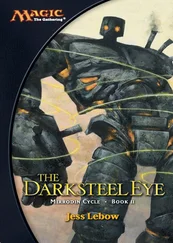Remy felt awful. “I didn’t-”
She shook her head. She was tall and thin, with adult acne scars. “Trust me. This is embarrassing enough without you mocking me,” the woman said.
She handed Remy a piece of burned paper in a plastic baggie. “The reason the note was misfiled was that we mistook the signatory for the beginning of the date it was written.” She winced. “I know. It’s a bonehead mistake and there’s no way, after all this time, that we should still be making mistakes like this.”
Remy looked down. He was holding a note written on the letterhead of March Selios’s law firm, scribbled in felt-tip pen. Most of the right side of the note was burned away, and he could see why someone might’ve thought it was the beginning of a date.
Hey -
We need to talk. I changed my mi
I can’t to go through wi
you understand.
March
Remy turned the note over. There was nothing on the other side. “I’m sorry,” he said. “I wasn’t implying that you’d done something wrong.” He laughed. “I couldn’t do that. I don’t even know what you’re supposed to do.”
Her eyes welled with tears. “Now you’re belittling me.”
“No.” Remy reached out and touched her arm. “No. I promise I’m not. I didn’t mean anything. Look, can I just… ask you something?”
The woman shrugged.
“Do you think…” He laughed. “Is it at all possible… that this is… all an illusion, that this is all in our heads?”
The woman looked around the vast airplane hangar, crews of workers filing millions of pages of documents. Her face flushed again and her eyes welled with tears. “Oh, go to hell,” she said.
EDGAR WORE clothes so similar to the ones he’d been wearing the last time Remy had seen him – baggy pants, hooded sweatshirt, tiny earphones – that Remy wondered if they actually were the same. And yet, there was something different about him; he seemed… bigger. Had Remy been away so much lately that he’d missed a kind of growth spurt? He was parked a block behind Edgar, and on the other side of the road, watching him through binoculars as he moved down the suburban street, with that hip-hop bounce.
When he got out of sight, Remy started his car and drove a few blocks, until he was in front of the boy again. He parked at the crest of a hill, in a dentist’s office parking lot, across from the back entrance to a mini-mall. He trained the binoculars on the sidewalk across the street.
Edgar came loping up the hill. Then he suddenly stopped, climbed over a retaining wall, and dropped out of sight into the mini-mall parking lot. Remy turned the key, pulled out, and drove around the block, finally turning into the back of the lot. The sky was low and overcast, as if a gray tarp had been thrown over the local suburbs.
Remy tooled through the parking lot, trying to find his son. The mall was shaped like a U, with a courtyard in the center and small stores clinging like barnacles to both the inside and outside of the U. As he drove, Remy ran his eyes over the storefronts – cell phone services and guitar sales and Army recruiting and bagels and ice cream and tanning beds and golf supplies and rattan imports and Remy could feel his blood pressure rising. Where was Edgar? Chiropractic and party supplies and maternity clothes. And Remy could feel something snap inside of him: I’ve had enough of this strobe-life, he thought. Fuck this! Why am I doing these things? Car stereos and tacos and espresso and computer repair. Why am I sleeping with April’s boss? Why am I haunting my own son? Tax preparation and futons and insurance.
“Goddamn it, Edgar. Where are you?” If there was something he wanted to tell the boy, then goddamn it, he was going to tell him. He could feel his face flushing. And just then he felt powerful enough to simply decide to throw off this strange jerking life, whatever it was – hallucinations or an illness or just the way life was lived now. A life is made up of actions, and if he wanted the world to be different, then he only needed to act differently. Every minute of every day was an opportunity to do the right things, to make something of this mess. He didn’t need to be unfaithful to his girlfriend. He didn’t need to be involved in some shady investigation that may have hurt innocent people. And he certainly didn’t have to drive around wondering what he wanted to say to his own son. When he found the boy, he would just open this car door and climb out, grab the boy by the shoulders, and say… something. Windshield glass and physical therapy and copies and-
THIS TIME, Remy didn’t bother protesting, or asking what had happened, or taking his medication, or even pleading with her to leave him alone. His skin was covered with a slick sheen of sweat, not all of it his own, and even though he couldn’t quite remember exactly what had preceded this moment, as he watched Nicole climb out of the big king-size bed and pad off to the bathroom, he knew it was too late. “Whew,” Nicole said. “You do understand that the root of quickie is supposed to be quick , right?”
The sheets were twisted around his ankles. He looked around the room, apparently Nicole’s bedroom: in each corner was a four-foot-tall Asian pot with a burst of dead sticks and flowers coming from it. On the wall in front of him was a triptych of abstract paintings, all with smears of pink on them. Next to that was a family photo of Nicole, her husband, and their son. When he heard the shower come on, Remy rose and slid into his pants, put on his shirt and his socks and his shoes, pulled his jacket off a chair, and slinked out of Nicole’s apartment. He took the elevator with a woman holding a terrier. The dog sniffed at him and then looked up at the woman as if to confirm her suspicions. On the first floor, the doorman was reading the Daily News, but he looked up in time to wink. Remy hurried past him, out the door.
On the street he saw a car that looked like Guterak’s, but it sped away from the curb. Remy watched cabs slide down the avenue toward midtown, and wondered if he had enough cash for one. He pulled his wallet out to see how much money he had, and he saw the edge of his “Don’t Hurt Anyone/Grow Up” card. He slid the card out, read it, and slid it back into his wallet. And that was the first time it crossed his mind that there might be another way to consider this problem, that there might, in some way, be two Remys, one he knew and the other he didn’t, and that these two men might be as different as-
HE WAITED as the old man was helped off the bus, which bore lettering on its side reading Englewood Senior Services . The driver, who had a shelf of long hair in back, nodded and spoke to the man in his loud senior citizen voice. “How’d you do today, Mr. Addich? You win all that money?”
“I always win all the money,” the old man said. He was small and impeccably dressed, in a suit without a tie. He clung to a black day planner as big as a motel room Bible. “I’m a winner!”
“What about them old ladies? You hittin’ any of those ladies, Mr. Addich?”
“I would never hit a lady. Unless she hit me first.” The old man winked.
This made the driver laugh as he got back on the bus. The doors closed, the bus began to pull away, and Mr. Addich made his way toward his son’s suburban house.
“Mr. Addich?” Remy climbed out of his car and hurried across the street. “Excuse me. Are you Gerald Addich?”
The old man turned slowly and looked at Remy without recognition. “Yes. Who are you?” The old man was all ears, two big handles divided by a spit of gray curly hair that lapped onto his forehead. His mouth was a pinched hole. He spoke with a gravelly third-generation Irish borough accent. “What can I do for you?”
Читать дальше












